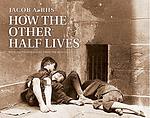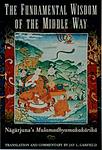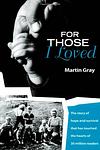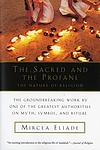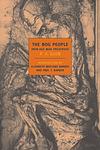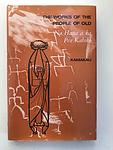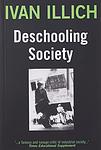The Greatest Danish, Multiple "Nonfiction" Books of All Time
Click to learn how this list is calculated.
This list represents a comprehensive and trusted collection of the greatest books. Developed through a specialized algorithm, it brings together 300 'best of' book lists to form a definitive guide to the world's most acclaimed books. For those interested in how these books are chosen, additional details can be found on the rankings page.
Genres
Countries
Date Range
Reading Statistics
Click the button below to see how many of these books you've read!
Download
If you're interested in downloading this list as a CSV file for use in a spreadsheet application, you can easily do so by clicking the button below. Please note that to ensure a manageable file size and faster download, the CSV will include details for only the first 500 books.
Download-
1. Out of Africa by Isak Dinesen
The book is a memoir that recounts the author's experiences and observations living in Kenya, then British East Africa, from 1914 to 1931. It is a lyrical meditation on her life amongst the diverse cultures and wildlife of Africa. The author shares her trials and tribulations of running a coffee plantation, her deep respect for the people and land of Africa, and her intimate understanding of the subtle nuances of African culture and society.
-
2. Fear and Trembling by Soren Kierkegaard
"Fear and Trembling" is a philosophical work that explores the concept of faith, drawing upon the biblical story of Abraham and his willingness to sacrifice his son Isaac. The author uses this story to delve into the paradox of faith, arguing that true faith requires a willingness to make personal sacrifices that may seem absurd or irrational to others. The book challenges conventional notions of morality and ethics, suggesting that faith may sometimes require actions that go beyond the bounds of societal norms.
-
3. Tractatus Theologico Politicus by Baruch de Spinoza
"Tractatus Theologico-Politicus" is a seminal work that explores the relationship between religion, politics, and philosophy. The author argues for the separation of theology and philosophy, asserting that the purpose of the state is to promote peace and security through rational governance, free from religious influence. He critiques the role of organized religion in politics and defends the freedom of thought and expression, advocating for a secular, democratic political order. The work also delves into biblical criticism, challenging traditional interpretations and suggesting that the Bible should be analyzed through a historical and contextual lens.
-
4. Either Or by Soren Kierkegaard
"Either Or" is a philosophical work that explores the concept of existentialism through the lens of two contrasting life views: the aesthetic and the ethical. The aesthetic life is characterized by immediate pleasure and enjoyment, while the ethical life is defined by moral duty and responsibility. The book presents these two perspectives through the fictional letters of two characters, ultimately arguing for the superiority of the ethical life. However, it also suggests that a truly fulfilled life must find a balance between the two.
-
5. How the Other Half Lives by Jacob A. Riis
The book is a detailed examination of the living conditions of the poor in New York City in the late 19th century. It provides a vivid and often shocking account of life in the slums, tenements and sweatshops of the city, based on the author's own investigative journalism. The book had a significant impact on public opinion and led to changes in housing laws and social policy.
-
6. The Sickness Unto Death by Soren Kierkegaard
This philosophical work explores the concept of despair, which the author sees as a spiritual condition linked to the Christian concept of sin. The author delves into the human struggle to reconcile the self with the ideal self, a process he argues is only possible through a relationship with God. The book also discusses existential dread, self-awareness, and the nature of the human soul, offering a complex and thought-provoking examination of the human condition.
-
7. Memories And Commentaries by Igor Stravinsky
"Memories and Commentaries" is a reflective work that offers a window into the mind of one of the 20th century's most influential composers. Through a series of personal recollections and insights, the book delves into the author's artistic journey, his relationships with other prominent figures in the world of music and art, and his philosophical musings on the nature of creativity. The narrative weaves together anecdotes from the composer's life, discussions on his own compositions and musical techniques, as well as his opinions on the works of his contemporaries, providing readers with an intimate portrait of a man whose legacy continues to shape the landscape of classical music.
-
8. Six Studies In Communism by Arthur Koestler, Richard Crossman
This book is a compilation of six essays that delve into the ideological and practical facets of communism. Each study examines different aspects of communist theory and practice, from its origins and evolution to its implementation in various countries. The authors critically analyze the successes and failures of communist systems, exploring the impact on societies that have adopted these principles. The essays also consider the psychological and sociological effects of living under communist regimes, providing a multifaceted perspective on one of the most influential political ideologies of the 20th century.
-
9. Early Spring by Tove Ditlevsen
"Early Spring" is a poignant autobiographical account of a young girl's coming of age in a working-class neighborhood of Copenhagen during the 1920s and 1930s. The narrative delves into the complexities of her family life, her struggles with identity and self-worth, and her passionate pursuit of writing as a means of escape and self-expression. The book captures the emotional landscape of the protagonist as she navigates the challenges of adolescence, the pressures of societal expectations, and her own burgeoning literary ambitions, all set against the backdrop of a changing Denmark. Through her introspective and lyrical prose, the story offers a deeply personal exploration of growth, resilience, and the relentless pursuit of one's dreams amidst adversity.
-
10. The Battle with the Slum by Jacob A. Riis
"The Battle with the Slum" is a historical documentation of the living conditions in the slums of New York City during the late 19th and early 20th century. The author, a social reformer and journalist, provides a detailed account of the overcrowded and unsanitary conditions that the city's poor were subjected to. The book also highlights the efforts of the government and philanthropists to improve these conditions and eradicate the slums, emphasizing the importance of housing reform and social welfare in urban development.
-
11. Dependency by Tove Ditlevsen
"Dependency" is the harrowing autobiographical account of a woman's struggle with addiction and the complexities of her personal life in mid-20th-century Copenhagen. Through a raw and intimate narrative, the book explores the protagonist's turbulent relationships, her quest for love and artistic recognition, and her descent into drug dependency. The memoir provides a candid look at the cycles of abuse and recovery, painting a poignant portrait of a woman grappling with her inner demons and societal expectations in a time when such topics were often taboo.
-
12. The Copenhagen Trilogy: Childhood; Youth; Dependency by Tove Irma Margit Ditlevsen, Tiina Nunnally, Michael Favala Goldman
"The Copenhagen Trilogy" is a collection of three autobiographical novels by Tove Ditlevsen, chronicling her life from childhood to adulthood in Copenhagen. The first book, "Childhood," explores Ditlevsen's difficult upbringing in a working-class family, while "Youth" delves into her teenage years and early adulthood, including her struggles with addiction and mental illness. The final book, "Dependency," examines Ditlevsen's relationships and her battle with addiction, culminating in her eventual recovery. Through her candid and introspective writing, Ditlevsen offers a poignant and powerful portrayal of the human experience.
-
13. Jammers Minde by Leonora Christina
"Jammers Minde" is a memoir that vividly recounts the experiences of a high-born woman who spent two decades imprisoned in a 17th-century Danish castle. The author, a daughter of King Christian IV, writes with raw emotion and detail about the hardships and injustices she endured during her incarceration. Her narrative not only provides a personal perspective on her resilience and coping mechanisms but also serves as a valuable historical document, offering insights into the political intrigue and societal norms of her time. The work is a testament to the strength of the human spirit in the face of adversity and a powerful portrayal of the author's unyielding determination to maintain her dignity and identity despite her circumstances.
-
14. De Anima by Aristotle
"De Anima" is a foundational philosophical treatise that explores the concept of the soul and its relation to the body. The work delves into the nature of life itself, categorizing different kinds of souls possessed by different kinds of living things, such as plants, animals, and humans. It discusses the faculties of the soul, including the nutritive, perceptive, and intellectual aspects, and investigates their functions and interactions. The treatise also examines issues of perception, cognition, and memory, arguing that the soul is the principle of life and the source of all vital functions, ultimately aiming to define the essence of life and the basis of all living activities.
-
15. Summulae De Dialectica by John Buridan, Gyula Klima
"Summulae De Dialectica" is a comprehensive exploration of medieval logic, focusing on the intricacies of philosophical reasoning and argumentation. The text delves into various forms of logical analysis and syllogistic structures, providing a detailed examination of the principles and applications of dialectical reasoning. It serves as a critical resource for understanding the evolution of logical methodologies during the medieval period, reflecting the intellectual rigor and analytical depth characteristic of scholastic philosophy. The work is pivotal for scholars interested in the history of logic, philosophy, and medieval studies.
-
16. The Fundamental Wisdom Of The Middle Way by Nagarjuna, Jay L. Garfield
"The Fundamental Wisdom of the Middle Way" is a philosophical text that explores the Buddhist concept of emptiness and the nature of reality. The work is a verse-by-verse commentary on the challenges and questions pertaining to conventional existence and ultimate truth, aiming to resolve the dichotomies and contradictions inherent in ordinary experience. Through rigorous argumentation and logical analysis, the text deconstructs the assumptions of inherent existence in phenomena, proposing instead that all things exist interdependently. This exposition not only deepens the understanding of Buddhist philosophy but also offers insights into the nature of suffering and liberation.
-
17. The World Of Economics by John Eatwell, Murray Milgate, Peter Newman
"The World of Economics" is a comprehensive reference book that serves as an essential guide to the field of economics, offering a wide-ranging compilation of entries penned by an international group of economists and scholars. The work covers key concepts, theories, and figures that have shaped economic thought, providing readers with a deep understanding of both historical and contemporary economic issues. Its encyclopedic format presents a wealth of information on various topics, including economic policy, market structures, and foundational principles, making it a valuable resource for students, professionals, and anyone interested in the complexities of how economies function and evolve.
-
18. For Those I Loved by Martin Gray
The book is a harrowing memoir of survival and resilience, chronicling the author's experiences during the Holocaust. As a young Jewish boy in Poland, he witnesses the brutal murder of his family by the Nazis and endures the horrors of the Warsaw Ghetto and Treblinka extermination camp. Against all odds, he manages to escape and join the resistance, fighting for freedom and justice. After the war, he rebuilds his life, only to face tragedy again when his wife and children are killed in a fire. The narrative is a testament to the human spirit's capacity to endure and find meaning in the face of unimaginable suffering.
-
19. The Sacred And The Profane by Mircea Eliade
"The Sacred and the Profane" explores the concept of human experience of the sacred, contrasting it with the profane world of everyday life. The author delves into various religious practices and beliefs to illustrate how traditional societies have structured their worldviews and environments through religious symbolism and myth. By examining sacred spaces, time, and nature, the book reveals how the sacred elevates and enriches human life, providing a sense of meaning and orientation. The analysis highlights the universal human tendency to seek connections with a transcendent reality, thereby separating and distinguishing the sacred from the ordinary.
-
20. Russia by El Lissitsky
The book "Russia" by El Lissitzky is an insightful exploration of Russian culture, art, and history, presented through the lens of one of the country's most influential avant-garde artists. The work delves into the transformative periods of Russian society, particularly focusing on the early 20th century, and examines the significant impact of the Russian Revolution on both the artistic community and the broader cultural landscape. Through a combination of text and innovative graphic design, the author provides a unique perspective on the evolution of Russian art and its profound connection to the nation's identity and political changes.
-
21. A History Of Russian Literature by Dmitry Svyatopolk Mirsky
"A History of Russian Literature" provides a comprehensive overview of the development of Russian literature from its earliest origins through the early 20th century. The book examines the evolution of literary forms, themes, and philosophies as they reflect the social, political, and intellectual changes in Russia. It delves into the works of major authors, the influence of Western European literature, and the unique characteristics of Russian literary movements. The text is scholarly yet accessible, offering insights into the cultural and historical contexts that shaped the literary output of Russia.
-
22. Episodes Of The Cuban Revolutionary War by Che Guevara
The book is a detailed account of the Cuban Revolutionary War, written by one of its key leaders. It provides an insightful narrative of the guerrilla warfare tactics and major battles that took place from 1956 to 1958, leading to the overthrow of the Batista regime. Through a series of essays and firsthand accounts, the author, a prominent revolutionary figure, shares his experiences, strategic thoughts, and the ideological convictions that drove the rebels' quest for Cuba's liberation. The work not only chronicles military engagements but also reflects on the social and political implications of the revolution.
-
23. The Bog People by P.V. Glob
"The Bog People" explores the fascinating archaeological discoveries of remarkably preserved human bodies found in the peat bogs of Northern Europe. Written by an esteemed archaeologist, the book delves into the Iron Age context of these finds, examining the clothing, artifacts, and ritualistic evidence surrounding the bodies. The author offers insights into the possible cultural and religious reasons behind the bog burials, suggesting that these were not merely accidental deaths but rather deliberate deposits, possibly sacrifices. Rich in detail and engagingly written, the book provides a window into a mysterious past where life, death, and belief systems intertwine in the damp moors of ancient Europe.
-
24. The Works Of The People Of Old by Samuel Manaiakalani Kamakau
"The Works of the People of Old" is an insightful compilation of traditional Hawaiian knowledge and practices, meticulously gathered from native elders and historical sources. The book delves into various aspects of pre-contact Hawaiian culture, including social customs, religious beliefs, and practical skills such as fishing, farming, and medicine. Through detailed descriptions and narratives, it preserves and shares the rich heritage of the Hawaiian people, offering readers a deep understanding of the wisdom and ingenuity embedded in their ancestral ways of life.
-
25. Deschooling Society by Ivan Illich
"Deschooling Society" is a critical discourse on the traditional and institutionalized education system, advocating for radical changes to deconstruct current structures of schooling. The book argues that the formal schooling system, as it stands, is counterproductive to learning, fostering dependency and limiting personal growth. It proposes a model where learning is decentralized, personalized, and driven by the learner's interests and needs. The author suggests the use of technology and networks to facilitate learning communities, rather than relying on compulsory, standardized, and hierarchical models of education. This shift, according to the book, would empower individuals and create true educational freedom.
Reading Statistics
Click the button below to see how many of these books you've read!
Download
If you're interested in downloading this list as a CSV file for use in a spreadsheet application, you can easily do so by clicking the button below. Please note that to ensure a manageable file size and faster download, the CSV will include details for only the first 500 books.
Download



